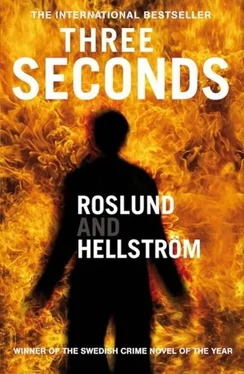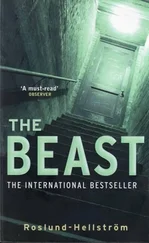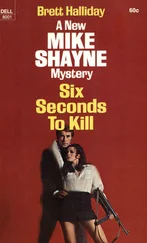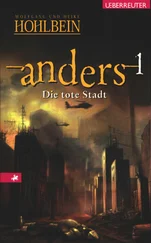She had been completely still.
Now and then he had stopped breathing, scared that he might not hear what she didn't say.
He sat on the edge of the bed, knew that she was awake, that she was lying there looking at his false back. He had continued to talk as they shared a cheap bottle of wine and when he was done, she just got up, disappeared into the bedroom and turned off the light. She hadn't spoken, screamed, only silence.
Piet Hoffmann got dressed, suddenly in a hurry to get away-it wasn't possible to stay with the nothingness. He turned around and they looked at each other without saying anything until he gave her a key to a safe deposit box in the Handelsbanken branch on Kungstradgardsgatan. If she still wanted to share a life together she should go there if he contacted her and said that everything had kicked off. She should open the safe deposit box and she would find one brown and one white envelope and she should do exactly what the handwritten letter instructed her to do. He wasn't sure if she had listened, her eyes had been distant, and he fled to the two small heads that were sleeping on two small pillows and he breathed in the smell of them and stroked them on the cheek and then left the house in the residential area that was still fast asleep.
Two and a half more hours. His face in the rearview mirror. A dark chin with salt-and-pepper stubble that was even more obvious on his cheeks-he had been a much younger man the last time he had stopped shaving. It itched a little, it always did to begin with, and then the straggled hair. He tugged at it, not much better really, it was actually too thin to grow.
He would be arrested soon, transported in a police van to Kronoberg remand prison, be issued with baggy prison clothes.
He drove through the dawn, his final trip to a small town to the north of Stockholm with a church and a library that he had visited less than twenty-four hours ago. The weak light and confused wind were his only companions in the square at Aspsås; Not even the magpies and pigeons and the bum who usually slept on one of the benches were there. Piet Hoffmann opened the returns box to the right of the library entrance and dropped in six books that were not borrowed often enough to merit being visible on the shelves. He then continued on to the church that took up so much space with its white facade, into the churchyard that was blanketed in a soft mist and looked up at the church tower that had a view over one of the country's high security prisons. He picked the locks of the solid wooden door and the considerably smaller door just inside and went up the uneven steps and an aluminum ladder to a closed hatch just under a cast iron bell that must weigh several hundred kilos.
Nine square concrete buildings inside substantial walls, which looked more like Lego blocks in their own world than ever before.
He looked toward the window he had chosen and aimed at it with an imagined gun, then took a silver receiver from his pocket-an earpiece identical to the one that was now hidden in a cavity in the left-hand margin of The Marionettes. He leaned over the railing, for a moment feeling like he might fall to the ground, and he held on to the iron railing with one hand while he checked that the two transmitters, a black cable, and a solar cell were still properly fixed where they should be. He put the receiver in his ear and one finger on a transmitter and ran it lightly back and forth-a crackling and snapping in his ear told him it was working fine.
He went down again, to the graves that lay side by side, but not too close, to the mist that blotted out death.
A merchant and his wife. A senior pilot and his wife. A mason and his wife. Men who had died as titles and professions and women who had died as the wives of their bedded husbands.
He stopped in front of a stone that was gray and relatively small and the resting place of a captain. Piet Hoffmann saw his father, the way he imagined him at least, the simple boat that had gone out from the border area between Kaliningrad and Poland and disappeared with its fishing nets over the Danzig Bay and Baltic Sea for weeks on end, his mother who later stood there and watched the slow progress into shore and then ran down to the harbour and his father's embrace. That wasn't how it had been. His mother had often talked about the empty nights and the long wait, but never about running feet and open arms, that was the picture he had painted for himself when he, as a child, had asked curious questions about their lives in another time, and it was the image he chose to keep.
A grave that hadn't been looked after for years. Moss crept over the corners of the stone and the small bed was overgrown with weeds. That was the one he was going to use. Captain Stein Vidar Olsson and wife. Born 3 March 1888. Died 18 May 1958. He had lived to be seventy. Now he was not even a gravestone that people came to visit. Piet Hoffmann held his mobile phone in his hand, his contact with Erik that would be cut in less than two hours. He turned it off, wrapped it in plastic wrap, put it in a plastic bag, got down on his knees and started to dig up the earth with his hands at the bottom right of the headstone, until he had a sufficiently large hole. He looked around, no other dawn visitors in the churchyard, dropped the telephone into the ground and covered it with earth and then hurried back to the car.
Aspsås church was still veiled in morning mist. The next time he would see it would be from the window of a cell in a square concrete building.
He'd managed it. He'd finished all his preparations. Soon he would be entirely on his own.
Trust only yourself.
He missed her already. He had told her and she hadn't said a word, somehow like being unfaithful-he would never touch another woman, but that was how it felt.
A lie that was neverending. He, if anyone, knew all about it. It just changed shape and content, adapted to the next reality and demanded a new lie so that the old one could die. In the past ten years he had lied so much to Zofia and Hugo and Rasmus and all the others that when this was all over, he would have forever moved the boundary between lies and truth; that was how it was, he could never be entirely sure where the lie ended and the truth began, he didn't know any longer who he was.
He made a sudden decision. He slowed down for a few kilometers and let it sink in that this really was the last time. He had had a feeling all year and now it had caught up with him, now he could feel it again and interpret it. That was how he worked. At first something vague that tugged at him somewhere in his body, then a period of restlessness when he tried to understand what it meant, then insight, a sudden, powerful understanding that had been so close for so long. He would sit out this sentence at Aspsås and he would finish his work there, and after that, never again. He had done his service for the Swedish police, for little thanks other than Erik's friendship and ten thousand kronor a month from their reward money, so that he didn't officially exist. He was going to live another life later, when he knew what a true life really looked like.
Half past five. Stockholm was starting to wake up. There were only a few cars on the road, the odd person rushing to catch a train or bus. He parked on Norrtullsgatan opposite the primary school and opened the door to a cafe that opened early and served porridge and stewed apples and a cheese sandwich and an egg and black coffee on a red plastic tray for thirty-nine kronor. He saw Erik as soon as he walked in, a face over by the newspaper stand that disappeared behind Dagens Nyheter in order to avoid eye contact. Piet Hoffmann ordered his breakfast and chose a corner on the other side of the room as far away from him as he could get. There were six other customers: two young men from a construction site in high-viz jackets and four considerably older men dressed in suits, with their hair combed for the only fixed point in the day. Breakfast cafes often looked like this, men who didn't have anyone and fled the loneliness of eating alone-women seldom did that, maybe they coped with loneliness better than men, maybe they were more ashamed and didn't want to make it public.
Читать дальше












